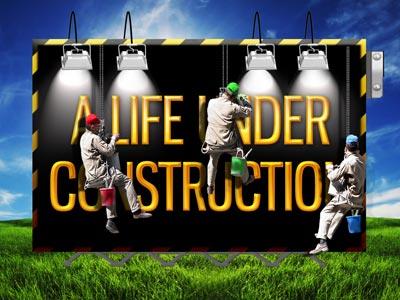-
Taking Your Licks
Contributed by Casey Campbell on Feb 11, 2013 (message contributor)
Summary: How much does one have to give up in order to find his or her center? In the words of the wise old owl, "Let’s find out…" It just may turn out that the more we cut away the more we discover ourselves becoming who we really are.
Some of you are, perhaps, old enough to remember the old Tootsie Roll Pop commercial asking, "Just how many licks does it take to get to the center of a Tootsie Roll Pop?" The little boy goes from the cow to the fox, to the turtle, and finally to the wise old owl who says, "Let's find out...one, two-hoo, three...crunch!" I'm not sure exactly what this may reveal about my personality, to say nothing of my sanity, but I've found myself asking that same question in an entirely different vein these past few weeks.
This past May our surgeon removed a good-sized portion of our daughter's right temporal lobe. It was fascinating to discover that you could remove a portion of a person’s brain, and that she could actually function better than she did before. The past week, we have witnessed two additional surgeries: one surgery completely disconnected the right hemisphere of her brain from the rest of her nervous system and the second completely removed the right frontal lobe. There is, however, every indication that she remains "Kathryn." In fact, once we are fully into recovery, there is every possibility that she may be more "herself" than she has been in a long, long time.
This begs the question, "How much of a person can you take away without erasing the person you began with?" Just how many surgeries does it take to get to the center, to the core, of a person?
While we know that this is in some sense a silly question, it may also be a profound one. It is the question, essentially, that our society is grappling with when we discuss abortion, euthanasia, and healthcare and social concerns all along life's continuum. When does life begin? When does it end? What does it mean to be alive? ...to be human? What does it mean to be me? Is there anything that is, essentially, me? What is the difference between you and me, and us and them?
Alright...before we get too far ahead of ourselves, let's have a think about what makes me "me" and you "you". Who is this "me" that "I" refer to?
One the most obvious difficulties we may run into in trying to answer this question is the problem of time. When I pull out a photo album and look at the snapshots taken of me from birth to this present time, I am fairly certain that each of them is an accurate representation of who I was at each of those given moments. I look back and see a photo labeled “2 months old” and recognize that , “yep, that’s me.” Photos taken at birthday parties, vacations, graduations, and holidays are each accurate representations of me at those given periods of time, but…while I can certainly agree that “that’s me, and me, and me again,” I know that none of those images is really “me”. I’m not the same person now that I was at any of those previous given points.
And it doesn’t take that significant an amount of time to make a significant difference in who I am…catch me some morning before I’ve had my coffee and medication! I think about the person I was before and immediately after I walked across various stages to receive various diplomas. In a moment, in a twinkling of an eye, I became a different person. I became a different me. It happened when I got married, when I became a birth parent, and when the judge signed the papers to make me the legal father of four adopted children.
We use transformational language all of the time: when we’ve gained or lost a significant amount of weight, gotten married or divorced, gone through a significant illness, or made it through a significant challenge. It’s not uncommon to make the claims that, “I was a different person back then,“ or “I’m not the same person that I used to be.” This is true; the events of our lives change us, and we become different people than we once were. Some of these experiences are so exceptional, they may make us feel almost like we’ve been “born again.”
Pretty interesting, huh?
We can complicate the situation even further by looking at other variables. You wouldn’t be “you” apart from the family you belong to. As an adoptive parent, there is no doubt in my mind that my children are different people now that they belong to me rather than to their birth parents. Our nationalities, ethnicities, socio-economic backgrounds, and morphology all serve to shape us into the people we are becoming…and, very significantly…we have no choice in these matters; they have nothing to do with the power of the will…nothing to do with choice. You really can’t choose who your family is (no matter how much you might want to). …or can you? --That is the $64,000.00 question (or whatever it ought to be adjusted to for inflation).

 Sermon Central
Sermon Central



